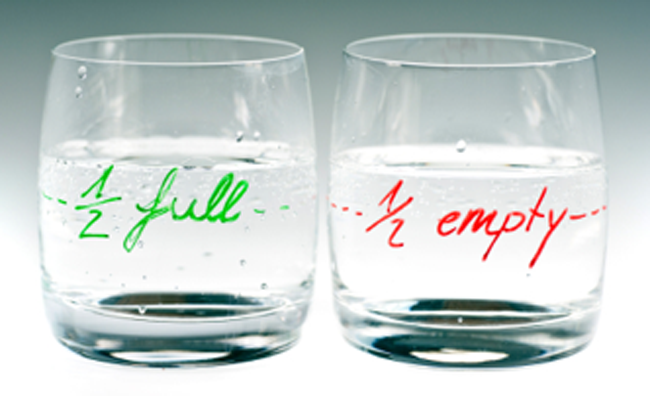Act Like an Optimist, Improve Your Health
Either way you see it, here’s the whole story on optimism and your health.
By: Marguerite Lamb from Redbook
First, let’s be clear: This is not an article about happiness. We’re not going to tell you to smile or lighten up. It’s not our intent to have you twirling through your backyard, picking buttercups, and singing about the “bright, sunshiny day.” No, this is an article about optimism. And though the two words are often used interchangeably, there is a vital distinction between them: “Happiness is an emotion, a feeling. Optimism is a belief about the future,” says Suzanne Segerstrom, Ph.D., a professor of psychology at the University of Kentucky and the author of Breaking Murphy’s Law: How Optimists Get What They Want from Life — and Pessimists Can Too.
Happiness is subjective, nebulous. Optimism, on the other hand, can be objectively defined as the tendency to expect that life will be mostly good. Ideally, the two go hand in hand — but not necessarily. We can feel blue or blah yet recognize it as a passing cloud. We can be dissatisfied in our work or relationships but believe that better times lie ahead. We can acknowledge when a situation stinks — the canceled flight, the flat tire during rush hour — without concluding that the universe is permanently aligned against us.
Not surprisingly, people who look at life this way are less likely to be depressed or anxious, studies show. (In fact, those with a more negative worldview are at greater risk for dementia and Parkinson’s disease in later life, according to the Mayo Clinic.) But optimists also live longer than their pessimistic peers. They may recover more quickly from surgeries and perhaps respond better to cancer treatments. Optimists also have healthier pregnancies, exercising more and stressing less during their latter trimesters. Indeed, these positive thinkers just feel better overall, experiencing fewer aches and pains and even better love lives: Optimists are more satisfied with their romantic relationships and have more satisfied partners, according to a Michigan State University study. Optimism appears to be an “enduring resource” for couples, say researchers, promoting cooperation, closeness, committment, and fidelity.
What makes optimism so optimal? For starters, optimists tend to have better coping skills and so may get battered less by life’s stressors, suggests Michael Scheier, Ph.D., the head of psychology at Carnegie Mellon University in Pittsburgh, who has studied optimism in heart and cancer patients. But optimism’s real power might lie not so much in what it does for us but in what it compels us to do. Optimists not only trust that the future will be mostly good, but they also believe their actions shape their destinies, Segerstrom says. This may be why optimists are more likely to eat right and exercise and are less likely to smoke or engage in other risky habits. When an optimist does get sick, she’s more apt to research and seek the best medical care and actively participate in treatment — all of which may improve her prognosis.
But what if you’re not a born optimist? Fortunately, a tendency toward optimism is only about 25 percent genetic, Segerstrom says; that leaves plenty of room for life experience — not to mention your behavior — to shape your point of view. That’s right: You can learn to “do optimism,” as she calls it, and reap the same benefits as true believers. “You don’t have to change your outlook on life; you don’t have to change your feeling,” Segerstrom says. “You just have to do things a bit differently,” Scheier agrees. “The person who sees the glass as half empty is no more wrong than the person who sees it as half full,” he says. But by acting like an optimist, even those cynics among us can bolster our bodies, minds, and spirits, now and for the future.
















Leave a Reply